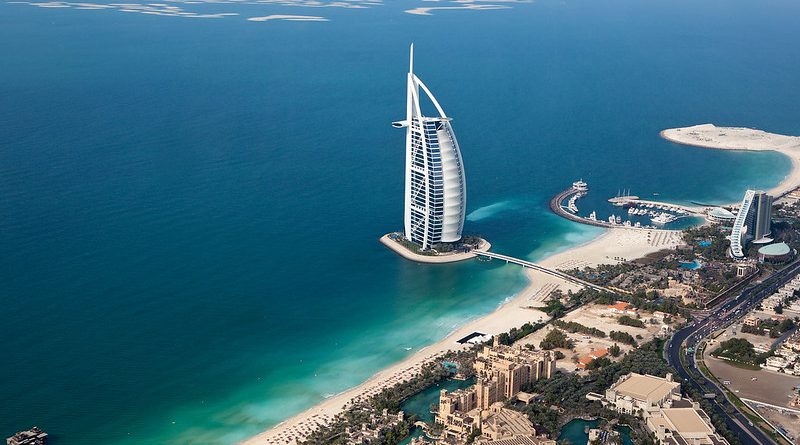The Gulf Sheikhs
The title of sheikh is often held by royalty in the Middle East, but it can mean so much more. In Arabic, the term sheikh means man of old age, and it’s a title that is not easily earned. Only the most revered and respected Muslims can earn this honorable title, and that generally means that a sheikh is a male over the age of 40. However, women can earn the title shaykhah or sheikha.
Muslims who earn the term sheikh have often diligently studied the religion of Islam, are well versed in the teaching of the Qur’an and live according to Sunnah, which is the way of life designated to Muslims by Muhammad. A person can be designated a sheikh if that person has completed undergraduate university studies in Islamic studies and is also trained to give lectures.
Islam is the second largest religion in the world, surpassed only by Christianity, and it’s also the fastest growing. Islam is most widely followed in Asia. Over 1 billion people in Asia recognize themselves as Muslim; most of these people live in India, Pakistan, Bangladesh and Indonesia. There are over 500 million Muslims in Africa and the Middle East.
Because of the large oil reserves and the number of wealthy families in the Middle East, some Sheikhs in the region are extremely wealthy – ranked as some of the world’s richest billionaires. In most of the Arab nations, members of the Gulf Royal Houses use the terms sheikh and sheikha, so many royals make the list of richest sheikhs.
Because the wealth of some royal families in the Arab peninsula is so secretly guarded it is possible that some of the world’s richest sheikhs are even richer than estimated
The most influential Gulf Sheiks today are:
Tamim bin Hamad Al Thani , Emir of Qatar
Born in 1980 in Doha, he the fourth son of previous Emir Sheikh Hamad bin Khalifa Al Thani. Sheikh Tamim was educated at Great Britain’s Sherborne School in Dorset, and at Harrow School. He then attended the Royal Military Academy Sandhurst, graduating in 1998. As of 2018, Tamim is the youngest reigning monarch among the GCC countries and the youngest current sovereign worldwide.
He was the first ruler, in a succession of three Qatari rulers from the Al Thani family, to ascend to power without resorting to a coup.
The Al Thanis can be traced back to Mudar bin Nizar, who settled at Gebrin oasis in southern Najd (present-day Saudi Arabia) before he moved to Qatar. They settled in Qatar around the 1720s, moving to Doha in the 19th century.
Mohammed bin Rashid Al Maktoum,
Emir Sheikh of Dubai and Prime Minister of the United Arab Emirates
Third son of Sheikh Rashid bin Saeed Al Maktoum’s four sons, members of Dubai’s ruling Al Maktoum family and descendants of the House of Al-Falasi, of which Sheikh Mohammed is the tribal leader. His mother was Sheikha Latifa bint Hamdan Al Nahyan, daughter of Sheikh Hamdan bin Zayed bin Khalifa Al Nahyan, formerly the ruler of Abu Dhabi.
Dubai Inc. is a phrase used to describe a collection of diverse companies owned primarily by the Government of Dubai. Local companies under Dubai Inc. include Dubai World, Dubai Holdings, The Emirates Group and the Investment Corporation of Dubai
Khalifa bin Zayed Al Nahyan,
Emir of Abu Dhabi and President of the United Arab Emirates
Emir Khalifa bin Zayed Al Nahyan , born in 1948 , is the eldest son of Sheikh Zayed bin Sultan Al Nahyan, the Emir of Abu Dhabi, Sheikh Zayed was the founding father and the principal driving force behind the formation of the United Arab Emirates, becoming the Union’s first Raʾīs (President). Emir Khalifa is also a graduate of the Royal Military Academy Sandhurst.
Salman bin Abdulaziz Al Saud,
King of Saudi Arabia
King Salman bin Abdulaziz Al Saud ,born in 1935, is reported to be the 25th son of King Abdulaziz ibn Abdul Rahman ibn Faisal ibn Turki ibn Abdullah ibn Muhammad Al Saud, the first monarch and founder of Saudi Arabia. King Salman and his six full brothers make up the Sudairi Seven, commonly used name for a powerful alliance of seven full brothers within the House of Saud.
Other Gulf Sheikdoms:
Bahrain
The King of the Kingdom of Bahrain is the monarch and head of state of Bahrain. The House of Khalifa has been the ruling family since 1783.
In 2002, the emir of Bahrain, Hamad bin Isa Al Khalifa, declared Bahrain a kingdom and proclaimed himself the first king.The king enjoys wide ranging powers, which include appointing the prime minister and the cabinet, holding supreme command over the Defence Force, chairing the Higher Judicial Council, appointing the parliament’s upper house and dissolving its elected lower house.
Kuwait
Sheikh Nawaf Al-Ahmad Al-Jaber Al-Sabahbecame the emir of Kuwait in 2020,following the death of Sabah Al-Ahmad Al-Jaber Al-Sabah.
Succession to the throne of Kuwait is limited to the descendants of Mubarak Al-Sabah. The position of emir is also traditionally alternated between the two main branches of the Al Sabah family, the Al-Ahmed and Al-Salem branches. The reigning emir must appoint an heir apparent within one year of his accession to the throne; the nominee for consideration as crown prince has to be a senior member of the Al Sabah family.
Oman
The sultan of the Sultanate of Oman is the monarchical head of state and head of government of Oman. It is the most powerfulposition in the country. The sultans of Oman are members of the Busaid dynasty, which has been the ruling family of Oman since the mid-18th century.
In 2021, the current Sultan, Haitham bin Tariq officially changed the Basic Law of State, stipulating the creation of the post for the Crown Prince of Oman and appointed his first son, Theyazin bin Haithamas the apparent successor, making him the first Crown Prince of the Sultanate.
As per the new l look was of succession , power is transferred from the Sultan to his eldest son and then to the eldest son of the Heir Apparent. In case the eldest son of the sultan has died , then the power is transferred to the eldest son of the Heir Apparent.
If the Heir Apparent has no sons, then the power is transferred to the eldest of his brothers. In Case the heir apparent has no brothers, then the powers transfer to the son of the eldest of his brothers and so on as per the sequence of the ages of the brothers.
In case there are no brothers or sons of brothers to the Heir Apparent, then the rule shall transfer to the uncles (only from the fathers’ side) and their sons .
The also states the Heir apparent must be a Muslim and legitimate son of Omani Muslim parents.




